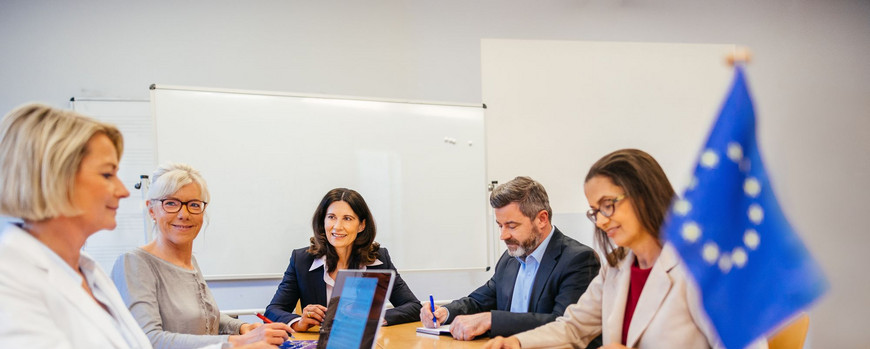
Erasmus+ Program
Erasmus+ is the flagship program of the European Union, aimed at promoting education, training, youth, and sports across Europe and beyond. Launched in 2014, it builds upon previous EU initiatives to create a more integrated and dynamic European space for learning and professional development. This program has become one of the most successful and well-known European initiatives, providing opportunities for millions of individuals to broaden their horizons and fostering collaboration between institutions. Below is a more detailed exploration of Erasmus+, its objectives, opportunities, and long-term impact.
What is Erasmus+
Erasmus+ is the European Union’s program for education, training, youth, and sport. It was introduced with the goal of addressing key challenges such as youth unemployment, the skills gap, and social cohesion across Europe. The program covers the 2014-2027 period and provides funding for a wide range of activities aimed at enhancing educational quality, employability, and fostering a sense of European identity.
With a budget of over €26 billion for the 2021-2027 period, Erasmus+ supports both individual mobility and transnational cooperation between educational institutions, youth organizations, and private businesses. Its scope extends beyond Europe, enabling collaboration with partner countries worldwide.

Objectives of Erasmus+
Erasmus+ has a set of core objectives that guide its structure and operations. These include:
Improving Skills and Employability
The program aims to equip individuals with skills that are critical in today’s global economy, such as language proficiency, intercultural competence, and adaptability. It also provides opportunities for internships and apprenticeships to increase employability.
Promoting Educational Innovation
By encouraging cross-border collaboration, Erasmus+ fosters innovation in teaching, curriculum development, and research, leading to improved educational outcomes.
Enhancing Cooperation Across Borders
Erasmus+ promotes partnerships between educational institutions, businesses, and organizations across Europe and partner countries, enabling the sharing of best practices, resources, and expertise.
Supporting Social Inclusion and Equity
A key focus of Erasmus+ is to increase access to education and training for individuals from disadvantaged backgrounds, ensuring that the program remains inclusive and equitable
Encouraging Environmental Sustainability
The program is aligned with the EU’s Green Deal, encouraging participants to adopt more sustainable practices and to include sustainability as a core element in projects and learning activities
Long-Term Impact and Future Directions
Erasmus+ has had a significant impact on the European education landscape since its inception. Over 10 million people have participated in the program, with a growing number of partner countries involved. Looking ahead, the program aims to become even more inclusive and environmentally sustainable, aligning with broader EU objectives such as the European Green Deal and the Digital Education Action Plan.
Erasmus+ will continue to play a pivotal role in building a more skilled, inclusive, and cohesive European society, offering opportunities for growth, innovation, and collaboration well into the future.


Mobility and Exchange Opportunities ?
One of the central pillars of Erasmus+ is mobility, which enables students, teachers, professionals, and young people to travel abroad for learning, training, or work placements. This experience not only enhances their academic and professional qualifications but also broadens their cultural perspectives.
Student Mobility
allows students to study abroad at a partner university for 3 to 12 months, with academic credits recognized through the European Credit Transfer and Accumulation System (ECTS).
Internships and Vocational Training
supports internships and vocational training, helping students and recent graduates gain practical experience in their field of study.
Staff Mobility
offers opportunities for teachers, lecturers, and administrative staff to participate in professional development and training programs abroad.
Youth Mobility and Volunteering
provides non-formal learning opportunities for young people through youth exchanges and volunteering programs, promoting active citizenship, leadership, and social responsibility.
Strategic Partnerships and Cooperation
Erasmus+ is not just about individual mobility; it also encourages strategic partnerships between organizations, schools, universities, and businesses across Europe. These partnerships aim to:
- Enhance Educational Quality: Erasmus+ fosters collaboration between institutions to exchange innovative practices and co-develop curricula and teaching methods.
- Foster Innovation: Partnerships develop solutions to educational challenges using new technologies and methodologies.
- Promote Social Inclusion: Joint projects address issues like discrimination, migrant inclusion, and education for disadvantaged groups.
